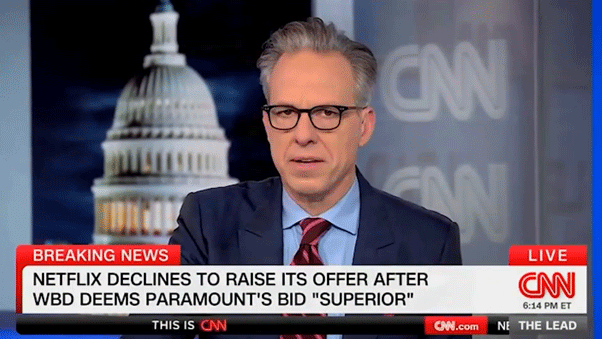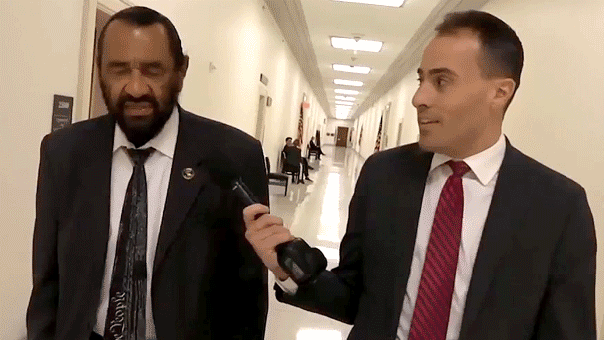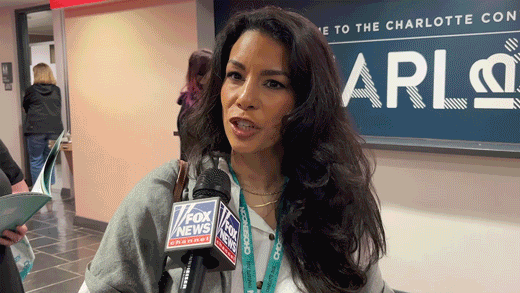Watters: Biden keeps breaking records - unfortunately not the ones we want
The ‘Jesse Watters Primetime’ host reveals how to restore American energy independence in his opening monologue.
NPR economics correspondent Scott Horsley suggested that rising gas prices actually do not have a major impact on most American households.
On Tuesday, he spoke with the NPR Politics Podcast to explain the recent announcement from President Biden to ban Russian oil imports due to the invasion of Ukraine. While gas prices have steadily rising for months, they are expected to increase further and surpass record levels.
MEDIA PREEMPTIVELY ATTACKS REPUBLICANS’ CRITICISM OF HIGH GAS PRICES AFTER RUSSIAN OIL BAN

Washington DC, USA - June 4, 2012: The NPR (National Public Radio) building in Washington DC. Founded in 1970, NPR is a non-profit network of 900 radio stations across the United States. (iStock)
Although Horsley acknowledged rising gas prices could cause pain to Americans, he emphasized that current reactions are "out of proportion" with their actual economic impact.
"We should say, you know, adjusted for inflation, gasoline is still cheaper than it was in 2008. And gasoline is really a relatively small part of the average household's budget. I don't mean to minimize the pain that high prices cause, but the political reaction is all out of proportion to the actual impact on household budgets. That's a sad fact that the Biden administration just has to deal with," Horsley said.
Host Tamara Keith remarked that while she agreed with him "objectively," "emotionally" she admitted concern over seeing her local gas station charge $4 a gallon for gas.
"That's just the way people are. The gasoline price is in 2-foot-high numbers on the side of the road there. So you notice it. And, of course, prices at the grocery store are up, too. So everyone is sort of in this funk about inflation. And this new spike tied to the war in Ukraine just adds to that political challenge for the White House," Horsley said.
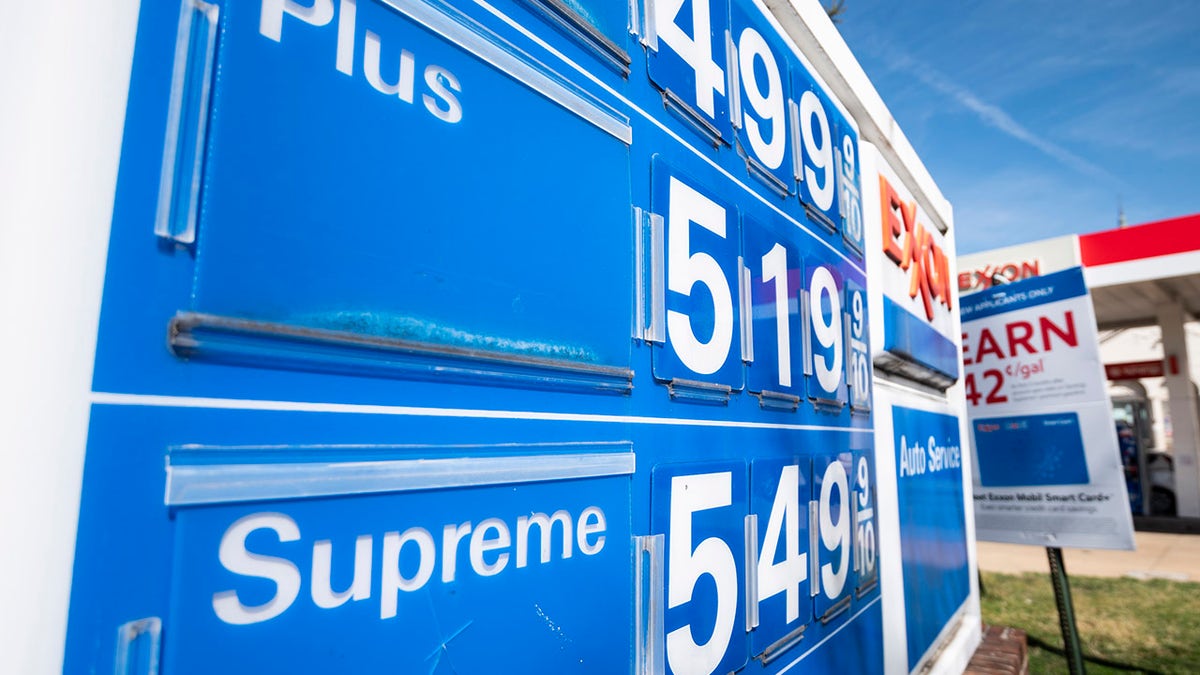
UNITED STATES - MARCH 8: Gas prices are displayed outside an Exxon station in Washington on Tuesday, March 8, 2022. (Getty Images)
He also noted that the Russian ban will have "very little impact" on U.S. oil supplies and the act seems to be more of a symbolic move on the world stage.
"So in practical terms, this will have very little impact on the supply of oil coming into the U.S. We weren't importing a lot of oil before and will go from importing little to importing none. This does come, though, at a time when world oil markets have been roiled by the prospect of limits on Russian oil exports. Russia is a big player on the - in the world market, even if they're not a big player here in the U.S. And that's why we've seen a big surge in crude oil prices and the price of gasoline," Horsley said.
MSNBC GUEST: HIGH GAS PRICES WILL FORCE AMERICANS TO ACCEPT ‘THE TRUTH’ OF GREEN ENERGY
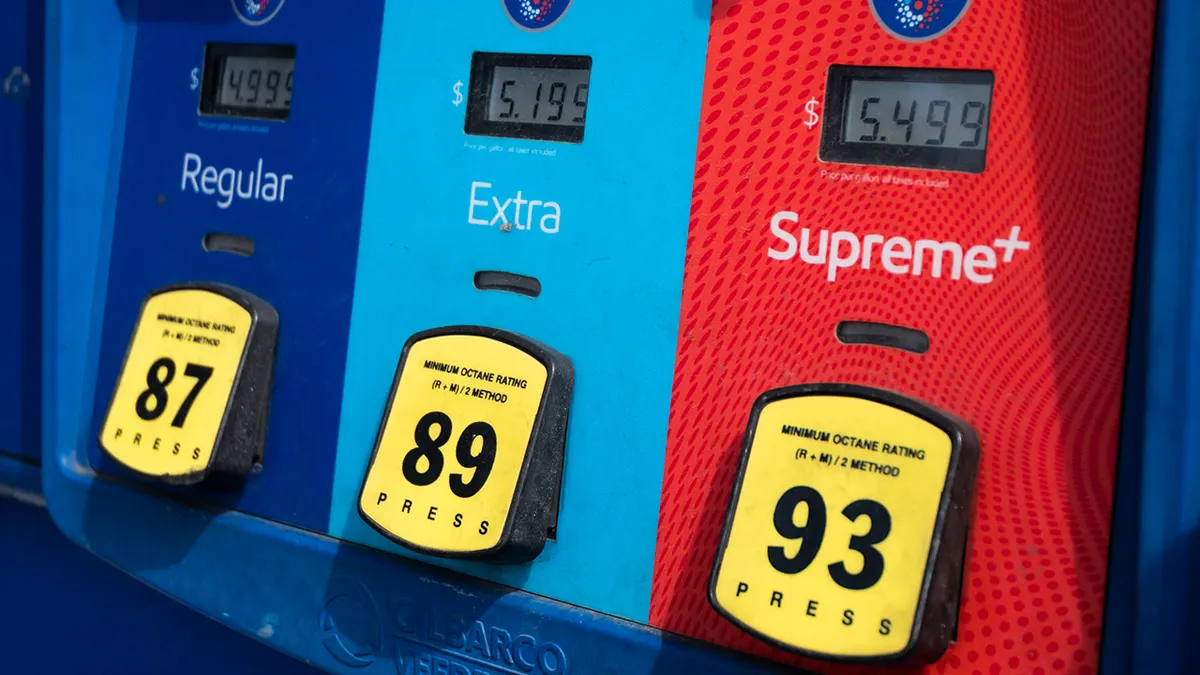
UNITED STATES - MARCH 8: Gas prices are displayed on a gas pump at an Exxon station in Washington on Tuesday, March 8, 2022. (Getty Images)
Horsley did not reference the Biden administration’s role in rising gas prices, particularly from Biden’s climate change executive orders that barred drilling permits on federal land and the termination of the Keystone XL Pipeline.
Biden has reportedly been considering courting other nations such as Venezuela, Iran, and Saudi Arabia to help increase oil supplies in the United States.





